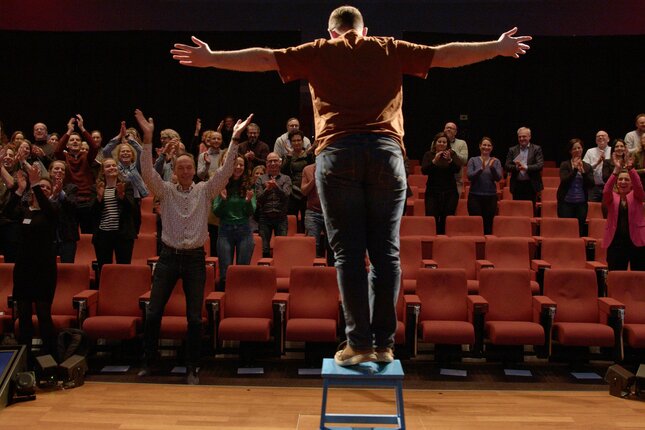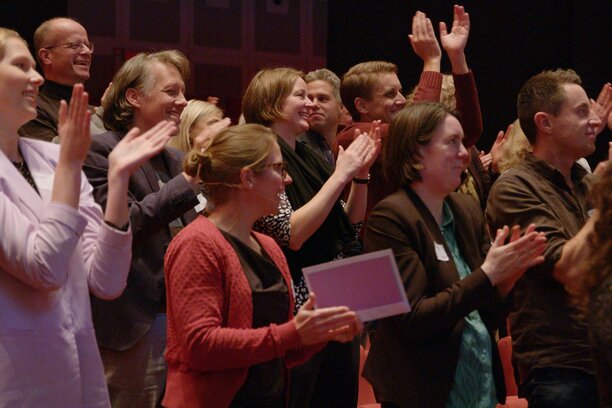'Making a real difference to the university together'
[VIDEO] Evaluation of the OpporTUnity program pilot for professional staff will follow in the spring.
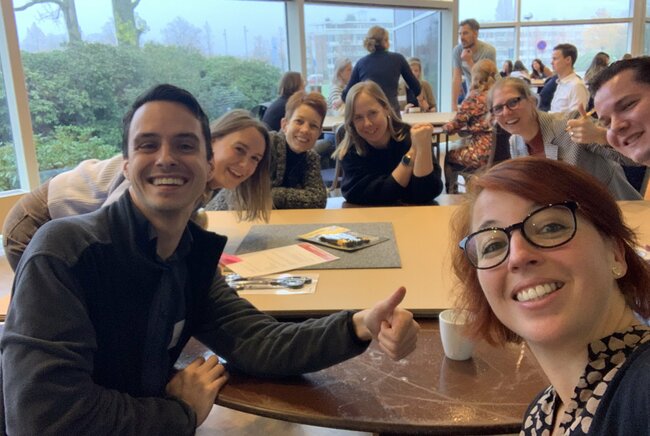
Some seventy staff from different service units and departments challenged themselves for a year in an intensive pilot program: the OpporTUnity program. In interdisciplinary groups, they worked on themselves, and on a better TU/e. “Your TU/e network gets bigger, the lines get shorter and you become one TU/e together,” enthuses Linda Scheel of the project team from HRM.
It was an intensive year for the seventy or so TU/e employees who started the OpporTUnity pilot program for support staff in November 2022. Coaching sessions, expert sessions, hackathons and an organization-wide challenge that they got to sink their teeth into as a group. All in addition to their regular jobs.
Investing
The participants, who work as professional staff at service units and departments, were nominated by their managers. “They are all people committed to the cause, who really want to go for TU/e,” says Linda Scheel, Learning Development specialist at HRM and one of the initiators of the OpporTUnity pilot program. “In turn, we are very happy to invest in our ambitious employees through this program.”
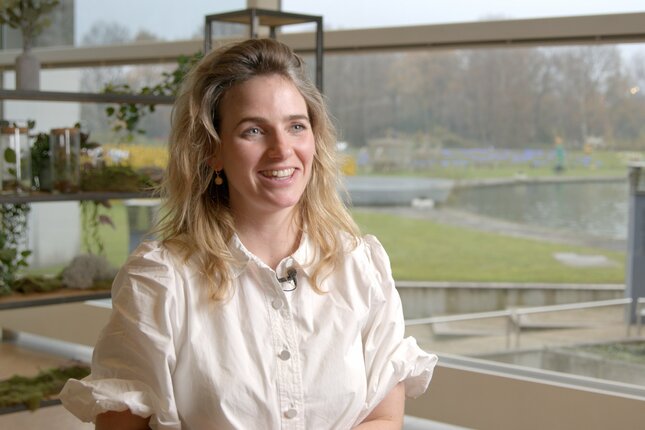
Challenging painpoint cases
“In the program, we challenge them to develop themselves not only personally but also as a group,” Scheel says. The participants worked in interdisciplinary groups on a university ‘painpoint’ or ‘challenges’, such as more intensive cooperation between the various management units, onboarding of new employees, career development at TU/e, involving staff in developments at TU/e, etc.
Uncertainty about what the outcome should be and how to get there with their interdisciplinary group is the biggest learning curve.
Linda Scheel, HRM-project team OpporTUnity program
The setup of the challenges is similar to those presented to students in Challenge-Based Learning. “Uncertainty about what the outcome should be and how to get there with their interdisciplinary group is the biggest learning curve in this,” Scheel says. “Learning to collaborate across the boundaries of our own service unit or department makes them feel more connected, more one TU/e.”
Excitement and euphoria
On November 30, the groups presented their findings and learning in the Evoluon. For colleagues, managers and The Executive Board. “They were stiff with excitement beforehand, but the euphoria afterwards was all the greater. It was so nice to see them so proud,” Scheel says.
Finish line
Not everyone crossed the finish line of the program as a result, for various reasons by the way. “We’ll take that into account in the evaluation,” Scheel says. The pilot will be evaluated in early 2024. “It would be great to be able to offer this annually to our employees, to continue to invest in them this way.”
More on our strategy
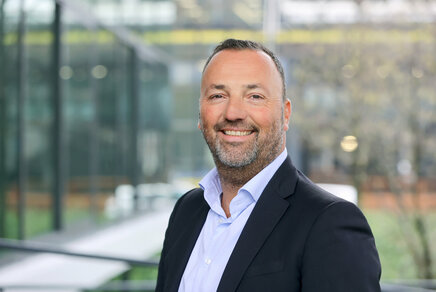

![[Translate to English:] [Translate to English:]](https://assets.w3.tue.nl/w/fileadmin/_processed_/c/f/csm_BvOF_2024_0319_AEV_license_TUe_Dirk_van_Meer_-_CORE_1__c976e259a5.jpg)
